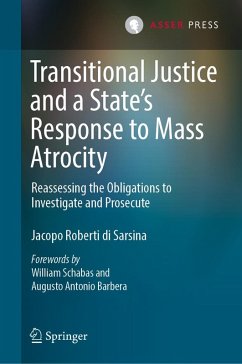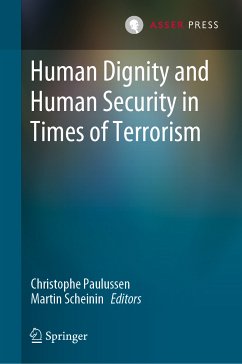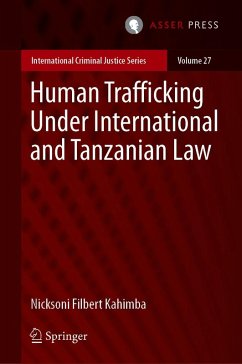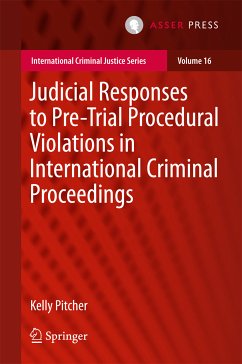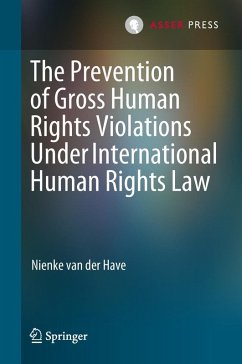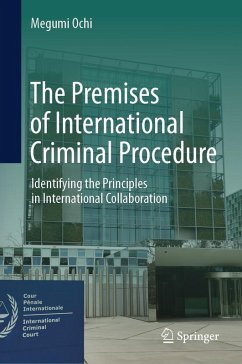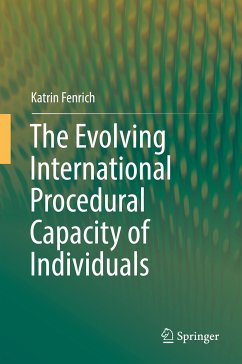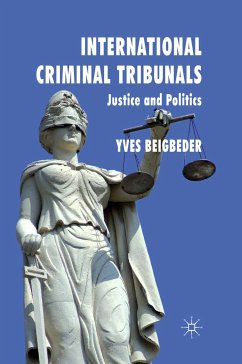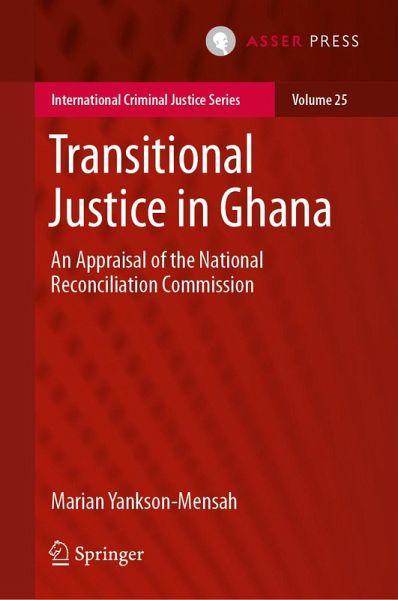
Transitional Justice in Ghana (eBook, PDF)
An Appraisal of the National Reconciliation Commission
Versandkostenfrei!
Sofort per Download lieferbar
72,95 €
inkl. MwSt.
Weitere Ausgaben:

PAYBACK Punkte
36 °P sammeln!
This book situates Ghana's truth-telling process, which took place from 2002 to 2004, within the discourse on the effectiveness of the different mechanisms used by post-conflict and post-dictatorship societies to address gross human rights violations. The National Reconciliation Commission was the most comprehensive transitional justice mechanism employed during Ghana's transitional process in addition to amnesties, reparations and minimal institutional reforms. Due to a blanket amnesty that derailed all prospects of resorting to judicial mechanisms to address gross human rights violations, th...
This book situates Ghana's truth-telling process, which took place from 2002 to 2004, within the discourse on the effectiveness of the different mechanisms used by post-conflict and post-dictatorship societies to address gross human rights violations. The National Reconciliation Commission was the most comprehensive transitional justice mechanism employed during Ghana's transitional process in addition to amnesties, reparations and minimal institutional reforms. Due to a blanket amnesty that derailed all prospects of resorting to judicial mechanisms to address gross human rights violations, the commission was established as an alternative to prosecutions.
Against this background, the author undertakes a holistic assessment of the National Reconciliation Commission's features, mandate, procedure and aftermath to ascertain the loopholes in Ghana's transitional process. She defines criteria for the assessment, which can be utilised with some modifications to assess the impact of other transitional justice mechanisms. Furthermore, she also reflects on the options and possible setbacks for future attempts to address the gaps in the mechanisms utilised.
With a detailed account of the human rights violations perpetrated in Ghana from 1957 to 1993, this volume of the International Criminal Justice Series provides a useful insight into the factors that shape the outcomes of transitional justice processes.
Given its combination of normative, comparative and empirical approaches, the book will be useful to academics, students, practitioners and policy makers by fostering their understanding of the implications of the different features of truth commissions, the methods for assessing transitional justice mechanisms, and the different factors to consider when designing mechanisms to address gross human rights violations in the aftermath of a conflict or dictatorship.
Marian Yankson-Mensah is a Researcher and ProjectOfficer at the International Nuremberg Principles Academy in Nuremberg, Germany.
Against this background, the author undertakes a holistic assessment of the National Reconciliation Commission's features, mandate, procedure and aftermath to ascertain the loopholes in Ghana's transitional process. She defines criteria for the assessment, which can be utilised with some modifications to assess the impact of other transitional justice mechanisms. Furthermore, she also reflects on the options and possible setbacks for future attempts to address the gaps in the mechanisms utilised.
With a detailed account of the human rights violations perpetrated in Ghana from 1957 to 1993, this volume of the International Criminal Justice Series provides a useful insight into the factors that shape the outcomes of transitional justice processes.
Given its combination of normative, comparative and empirical approaches, the book will be useful to academics, students, practitioners and policy makers by fostering their understanding of the implications of the different features of truth commissions, the methods for assessing transitional justice mechanisms, and the different factors to consider when designing mechanisms to address gross human rights violations in the aftermath of a conflict or dictatorship.
Marian Yankson-Mensah is a Researcher and ProjectOfficer at the International Nuremberg Principles Academy in Nuremberg, Germany.
Dieser Download kann aus rechtlichen Gründen nur mit Rechnungsadresse in A, B, BG, CY, CZ, D, DK, EW, E, FIN, F, GR, HR, H, IRL, I, LT, L, LR, M, NL, PL, P, R, S, SLO, SK ausgeliefert werden.



